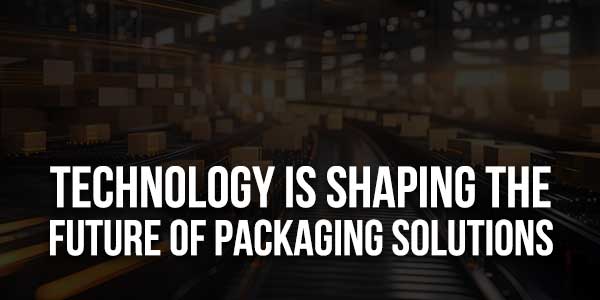
The packaging industry is undergoing a rapid transformation, fueled by technological advancements. From improving efficiency to ensuring sustainability, innovative solutions are reshaping how products are packed and delivered. Among these innovations are cutting-edge technologies such as seal machines, smart packaging, and eco-friendly materials, all of which are setting new standards for performance, safety, and environmental care. This post explores the game-changing role of technology in packaging and its impact on businesses and consumers.
Table of Contents
The Role Of Technology In Packaging Solutions:
Technology has become the backbone of modern packaging solutions. It addresses the challenges of cost, speed, safety, and environmental impact, enabling companies to meet consumer demands while staying competitive. Advanced machinery and smart systems are helping manufacturers streamline processes, reduce waste, and create smarter, more sustainable packaging.
Seal Machines:
Seal machines are an essential technology in the packaging industry, responsible for ensuring product freshness, security, and safety. These machines create airtight seals for products, protecting items from contamination, spoilage, and tampering. Seal machines are vital in maintaining quality throughout a product’s lifecycle, whether it’s for food, pharmaceuticals, electronics, or retail goods.
Key Benefits Of Seal Machines:
Enhanced Efficiency: Modern seal machines automate the sealing process, drastically reducing packaging times compared to manual methods. This allows businesses to handle high production volumes while maintaining consistency and reliability.
Cost-Effectiveness: By minimizing waste and optimizing resources, seal machines contribute to significant cost savings. They also reduce labour costs by automating repetitive tasks, enabling employees to focus on higher-value activities.
Improved Product Safety: Seal machines create tamper-proof packaging, which is critical for sensitive industries like food and medicine. They ensure that products remain secure and uncontaminated during storage and transportation.
Versatility: Sealing solutions are available in various formats, from heat sealers to vacuum sealers, catering to the diverse needs of packaging different products.

Innovations In Seal Machines:
Newer seal machines are integrating smart technology like sensors to monitor operational performance and detect errors in real-time. This reduces downtime and optimizes output, further elevating their convenience for manufacturers.
Smart Packaging For Smarter Solutions:
Smart packaging leverages technology to enhance a package’s functionality, enabling it to provide real-time data, improve user experience, and increase product safety.
Features Of Smart Packaging:
Embedded Sensors and Indicators: Smart packaging can include sensors that monitor temperature, humidity, or freshness levels. For example, temperature-sensitive products like vaccines or fresh produce can benefit from packaging that alerts handlers to potential spoilage.
Interactive Features: Smart packaging often integrates QR codes or NFC tags that allow customers to verify a product’s authenticity, learn more about the manufacturer, or access personalized content.
Supply Chain Tracking: With embedded technology, smart packaging can enable end-to-end tracking, improving logistics efficiency and transparency within the supply chain.
Industry Applications:
Retail, healthcare, and food industries are some of the biggest adopters of smart packaging solutions. By combining innovative designs with real-time functionality, businesses are improving customer experiences while safeguarding product integrity.
Sustainability in Packaging Technology:
Modern packaging solutions must also address the growing concerns of waste and environmental damage. Consumers and governments alike are demanding eco-friendly practices, and technology is playing a critical role in addressing these challenges.
Sustainable Materials: Biodegradable, recyclable, and compostable materials are becoming industry standards. Advancements in material science mean that companies can now use plant-based plastics or paper alternatives that maintain durability while reducing environmental harm.
Reducing Waste with Technology: Seal machines and smart packaging also contribute to sustainability efforts. Seal machines help minimize excess packaging material by ensuring precise cuts and seals. Smart packaging solutions can track usage and prevent unnecessary waste by extending product shelf life through better monitoring.
Circular Economy Initiatives: Many companies are using new technologies to support circular economy practices, where packaging materials are reused or recycled to create new products. This shift reduces resource consumption and aligns with long-term sustainability goals.
The Future Of Packaging Is Tech-Driven:
The integration of technology into packaging solutions is not just a trend; it’s shaping the future of the industry. Advances in seal machines, smart packaging, and eco-friendly practices are improving efficiency, reducing costs, and meeting consumer expectations for sustainability and safety. Businesses that adopt these innovative approaches will not only gain a competitive edge but also contribute to a more sustainable and efficient global economy. Whether through streamlined sealing processes, connected packaging features, or eco-conscious materials, the future of packaging is firmly tied to the evolution of technology.

 About the Author:
About the Author:
















Be the first to write a comment.